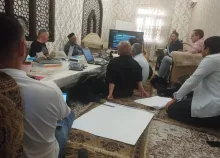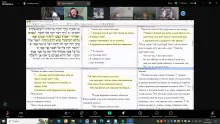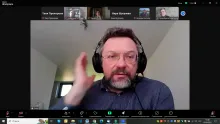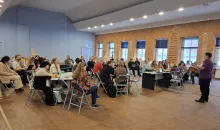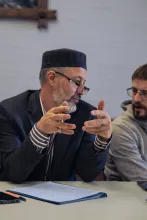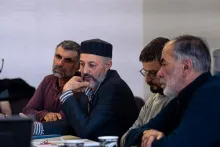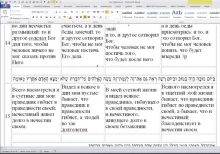ibt-training-seminar-on-oral-bible-translation
On June 22-26, 2025, the Institute for Bible Translation conducted a seminar for new translators from various Dagestanian languages, including those with no writing system. During this training event, IBT launched several new projects that will be using oral Bible translation (OBT) methodology. New projects have now been launched in the Archi, Botlikh, Murego-Gubden, Tindi, Khvarshin, Tsez and Chirag languages. The seminar, structured as a blend of lectures on theory and practical sessions, marked the beginning of these initiatives.
workshop-on-poetic-discourse-in-turkic-languages
A workshop on "Discourse in the book of Proverbs in Turkic languages," organized by the Institute for Bible Translation, was held in Tashkent on April 21-24. Translators and exegetical advisers from the Altai, Balkar, Siberian Tatar, Khorazm and Kyrgyz Bible translation projects participated.
webinar-on-the-book-of-jeremiah
training-seminar-for-new-translation-project-participants
On March 11-14, 2025, the Institute for Bible Translation held a training seminar for new participants from 19 translation projects: Aghul, Akhvakh, Andi, Chamalal, Chuvash, Even, Evenki, Ghogoberi, Hinukh, Hunzib, Kaitag, Kalmyk, Karachay, Karata, Khorazm, Kubachi, Nenets, Tsudakhar and Yakut. The purpose of the seminar was to train translators, exegetical advisors, and philological editors...
seminar-on-translation-of-key-biblical-terms
news-18122024
Forty people, representatives of eleven small ethnic groups of Russia, gathered in Moscow on 17-18 December for the IBT seminar dedicated to Scripture Engagement. The main message and slogan of the event was: "The Bible translated into a new language should not remain on the shelf". Participants deepened their understanding of the basic principles of organising the work of Scripture Engagement through the inspiring and lively presentation of the keynote speaker.
news-20012024
From January 15 to 20, the Institute for Bible Translation held a practical seminar on oral Bible translation (OBT) in Makhachkala.
Translators and exegetical advisers from the Tsudakhar, Godoberi, Chamalal andl Karata projects participated in this event. All four of these non-written languages belong to the Nakh-Dagestani language family. The oral nature of the use of these languages by their speakers determined the choice of the oral Bible translation methodology for them.
The workshop started with an introduction to the methodology of the translation process, providing the participants with a solid foundation for their practical exercises. The practical segment of the workshop focused on the 1st chapter of the book of Ruth, allowing the participants to apply the newly acquired knowledge and skills to a specific biblical text...
newsletter-01122023
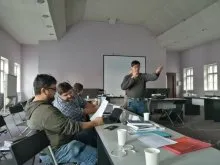
news-14102022
On October 10-14 IBT conducted a webinar for Bible translation teams from IBT and partner organizations on the Old Testament book of Ecclesiastes. 14 participants from seven Bible translation projects (Avar, Kyrgyz, Tabasaran, Khakass, Tsakhur, Yakut and a North Caucasian project) gathered online for this training event. The webinar was taught by Luka Manevich, a biblical scholar and exegetical adviser in several Scripture translation projects, already familiar to many of the students from his expert instruction at previous webinars.
newsletter-080920
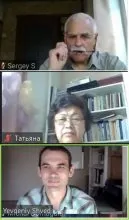
Here is Mal 2:2 in the Revised Standard Version: “If you will not listen, if you will not lay it to heart to give glory to my name, says the Lord of hosts, then I will send the curse upon you and I will curse your blessings; indeed I have already cursed them, because you do not lay it to heart.” What is a “blessing”? And a “curse”? When using these words today...




